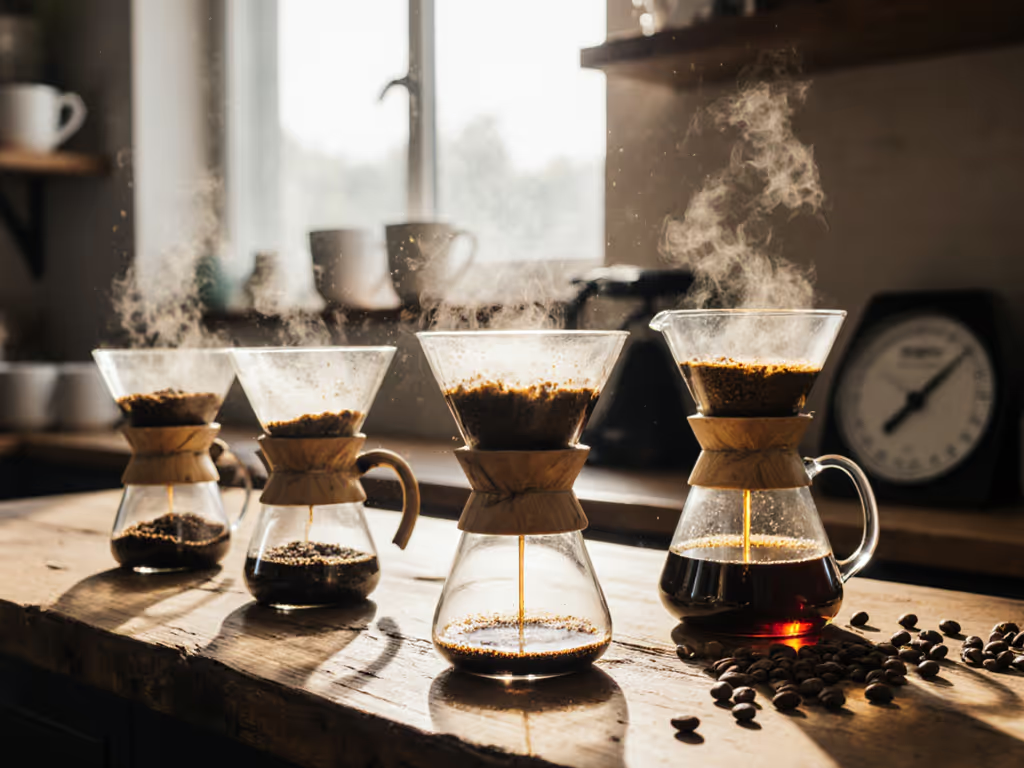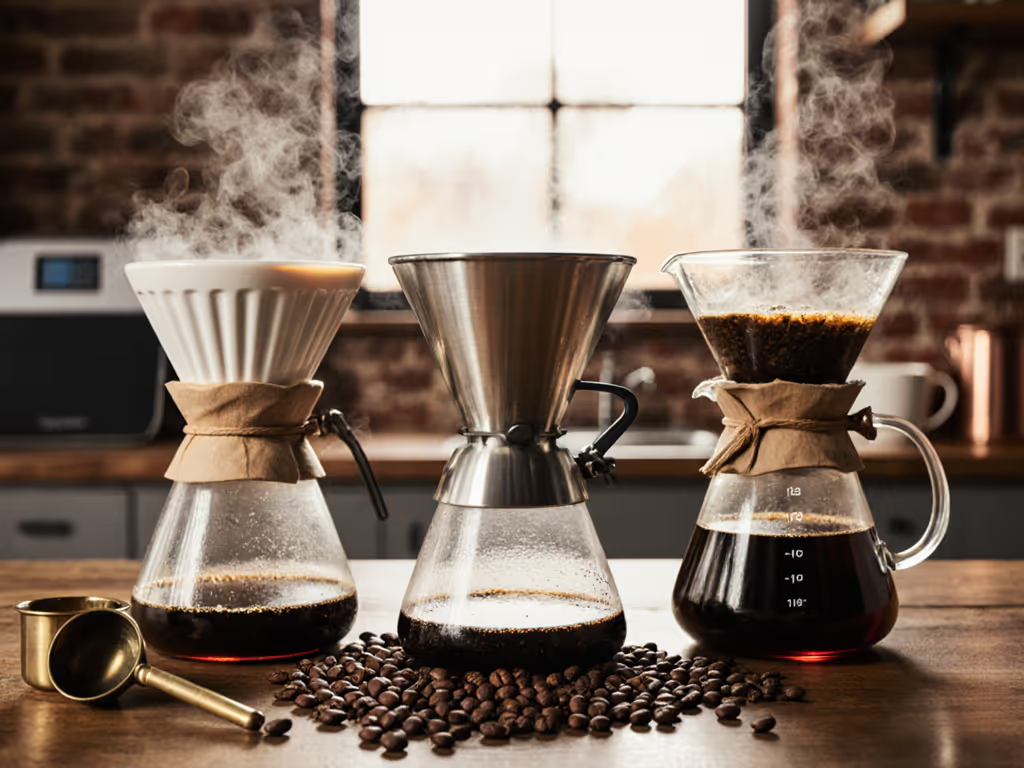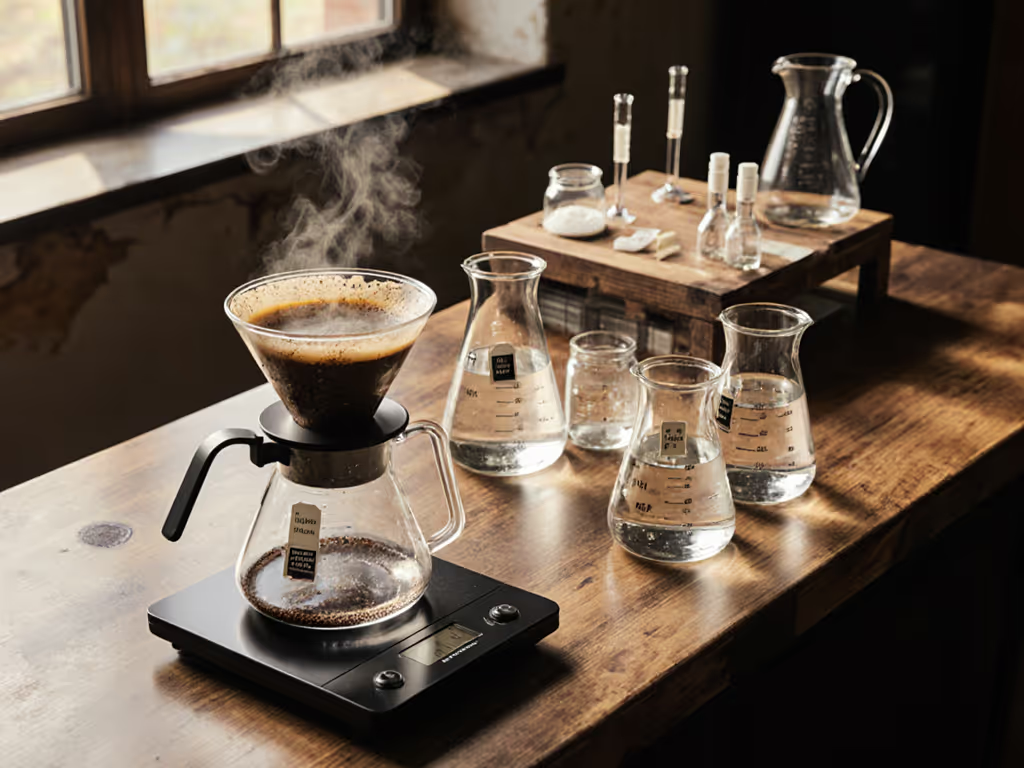
Chemex vs French Press: Clean Cup or Rich Body?
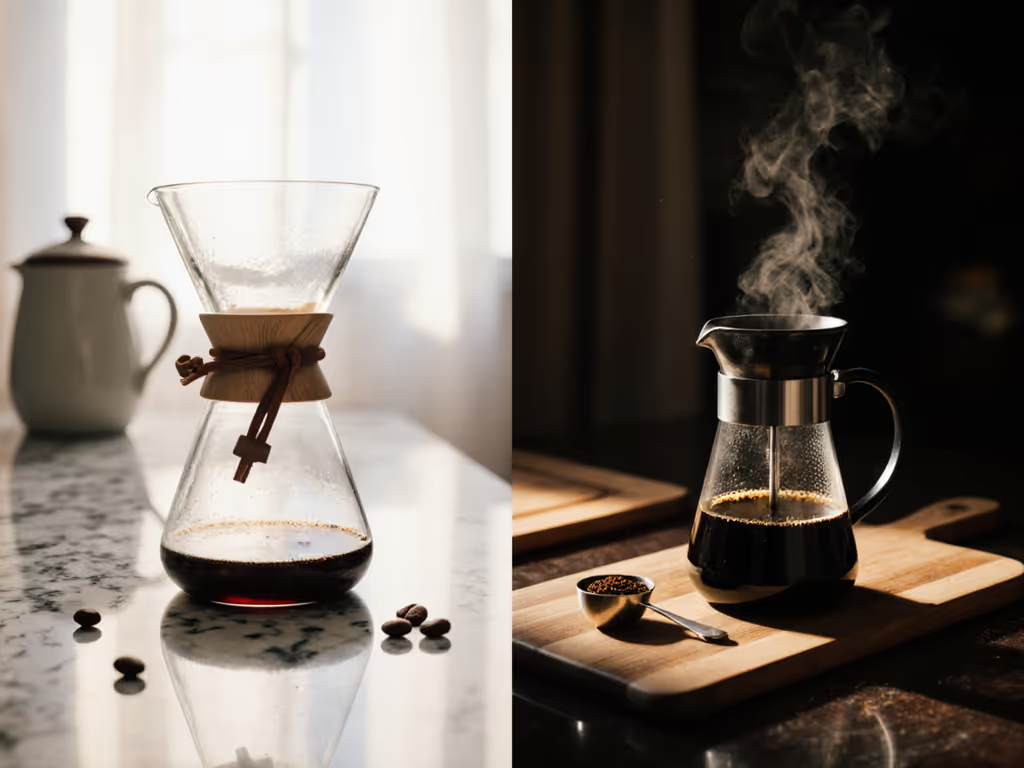
When you're weighing Chemex vs French press options, or the broader pour over vs French press dilemma, most guides oversimplify. They'll tell you it's about 'bright notes versus bold body' while ignoring your weekday reality: inconsistent water, mid-tier grinders, and zero time for finicky rituals. I've tested both through two apartment moves, tracking every cent and gram of waste. The truth? Your budget and planet matter as much as your palate. Let's cut the hype. Brew great, spend less, waste nothing; your sink will thank you.
Brewing Mechanics: Immersion vs Gravity (and Why It Matters)
Coffee extraction isn't magic, it's physics. How water meets grounds determines everything. Let's dissect the machines without the fluff.
French Press: Steep and Plunge
The French press is immersion brewing: coarse grounds steep in hot water like a tea bag. After 4 minutes, you press the plunger's mesh filter down. Simple? Yes. Forgiving? Deceptively. Grind size is critical: too fine and you'll get gritty sludge, too coarse and it's weak. A $20 hand grinder's uneven particles cause channeling, making some brews bitter while others lack depth. (My Bodum Chambord once produced a cup with both chalky bitterness and sour notes, grind inconsistency strikes again.)
Chemex: Paper Filter Precision
Chemex is pour-over with extra steps. Medium-coarse grounds bloom, then water drips slowly through a thick paper filter. This isn't just 'cleaner', it's selective filtration. The Chemex's proprietary filter (20-30% thicker than standard) blocks oils and fines that cloud flavor. But here's the tradeoff: you lose richness. That Ethiopian light roast might show vibrant fruit notes, but a Sumatran's earthy depth gets muted. Worse, cheap paper filters can impart papery tastes, wasting $20 beans.
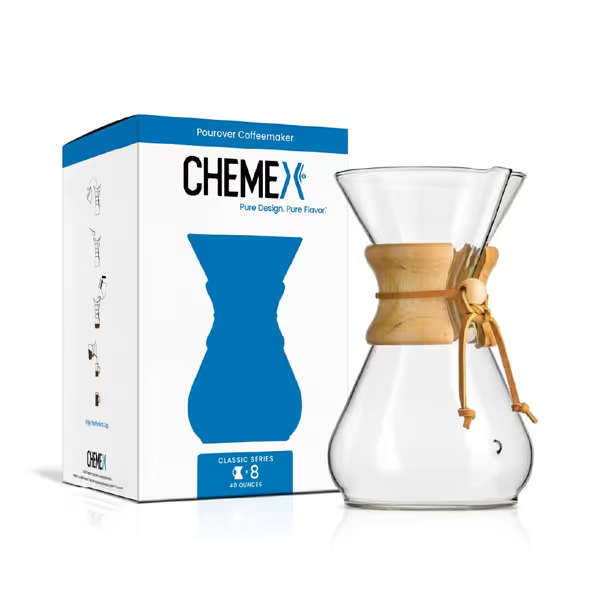
Chemex Classic Series - 8-Cup
Flavor Face-Off: What Your Taste Buds Actually Experience
Forget 'bright versus bold', let's talk real-world variables that break brews.
The Water Wildcard
Hard water? French press shines. Minerals amplify body, softening the inherent grittiness. Soft water? Chemex wins, its filters compensate for lack of mineral depth. (In NYC with moderate hardness, my French press needed 15% more coffee to avoid thinness, while my Chemex choked without a 5-second bloom pause.) For practical ways to test hardness and improve flavor, see our perfect pour-over water guide.
Chemex Taste vs French Press Under Constraints
| Factor | Chemex | French Press |
|---|---|---|
| Clean Cup Clarity | ✅ Shows delicate notes (e.g., Ethiopian florals) | ❌ Sediment masks subtleties |
| Body & Richness | ❌ Oils filtered out | ✅ Full-bodied mouthfeel |
| Grinder Forgiveness | ❌ Requires precise medium-coarse grind | ✅ Tolerates coarser, uneven grinds |
| Hard Water Impact | ❌ Mineral flatness amplifies weakness | ✅ Minerals enhance body |
Key insight: If your tap water is hard (like most US cities), body in French press vs Chemex comparisons tilts toward French press. Soft water regions (Pacific Northwest, Europe) favor Chemex for clarity.
Cost & Sustainability: The Hidden Factors Nobody Tracks
Coffee gear shouldn't cost more than your sanity. Let's calculate.
Which is better Chemex or French press for your wallet?
-
Chemex: $45 carafe + $8 for 100 filters = $53 initial. At 2 filters/day, that's $0.08/filter or $0.16/day. Filters make up 60% of your cost by year two. Break one carafe? You're out $45.
-
French press: $40 Bodum Chambord. No filters. Even if you replace the glass carafe yearly ($15), it's $0.04/day. My Chambord's lasted 3 years, $0.036/day.
Per-cup math with $15/lb beans:
- Chemex: $0.67 (beans) + $0.08 (filter) = $0.75/cup
- French press: $0.67 (beans) = $0.67/cup
Not huge, until you multiply by 365 days.
Cleaner Coffee With Chemex? At What Cost?
Chemex filters remove oils that do carry flavor compounds, not just 'bad fats' as marketing claims. But the waste is real: 1,095 filters/year = 2.7 lbs paper waste. That's 57 trees per 1,000 users annually. French press produces zero filter waste. I switched to a stainless mesh filter ($12) after moving apartments twice, it paid for itself in 60 days. Pay once, brew for years.
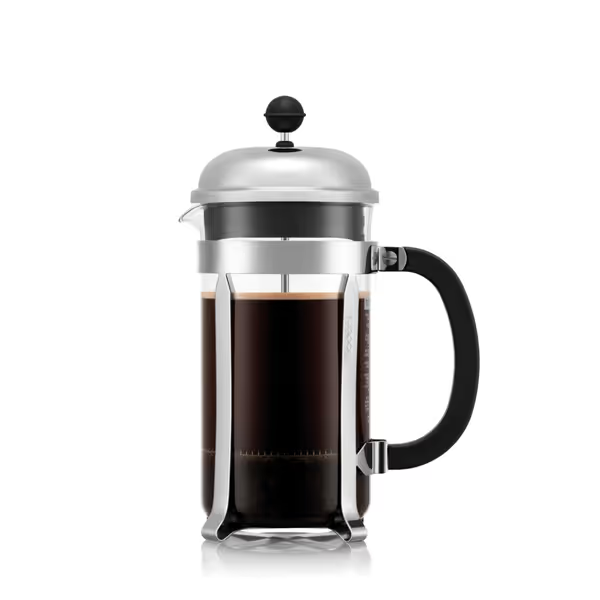
Bodum Chambord French Press
Cleanup Reality Check: The Morning Rush Test
Your 7 AM self doesn't care about 'elegant rituals.'
-
Chemex: Toss filter + rinse carafe. 45 seconds. But if grounds stick? Add 2 minutes of scraping. Paper filters are not zero cleanup.
-
French press: Knock grounds into compost, swish carafe. 60 seconds. Sediment traps require occasional thorough scrubbing (2 minutes). Pro tip: Use a chopstick to dislodge sludge, saves your sink strainer.
When I tracked this during my apartment moves, I lost 11 hours/year on cleanup alone. Both fail weekday practicality, but French press wins with a stainless filter.
When to Choose Which: A No-BS Decision Framework
Stop guessing. Match your brewer to your constraints:
Choose Chemex IF:
- You have soft water and a precision grinder (Baratza Encore or better)
- You drink light roasts daily (Ethiopian, Kenyan)
- You compost filters religiously
- You won't mind replacing glass if it breaks (it will)
Choose French Press IF:
- Your tap water is hard (check your city's report)
- You use a budget grinder (AeroPress hand mill or similar)
- You want rich body with bold roasts (Sumatran, Colombian)
- You hate replacing parts
Avoid Both If:
- You need coffee in <3 minutes (look at AeroPress)
- You're brewing for >4 people daily (scaling Chemex is a nightmare)
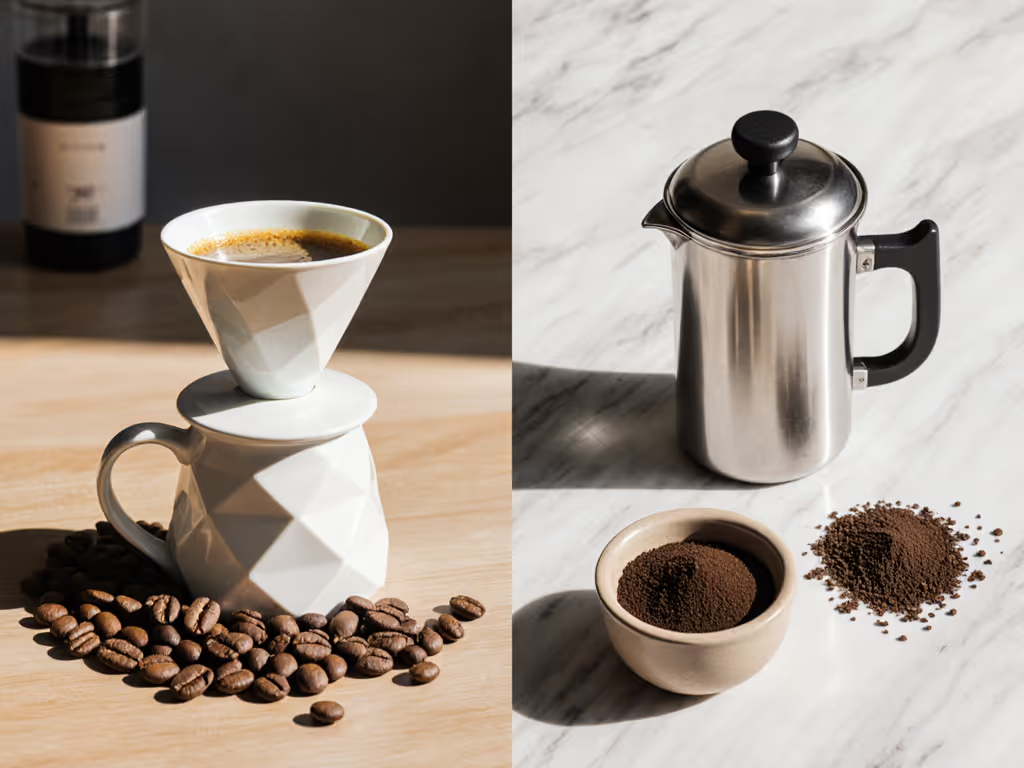
The Verdict: Practical Recommendations
For apartment dwellers and weekday warriors: Start with French press. Its durability and zero-waste potential align with real life. Get a Bodum Chambord ($40), add a stainless mesh filter ($12), and ditch paper forever. It handles hard water better, forgives grinder inconsistencies, and survives moves. After two apartment changes, mine still works (that's low-waste efficiency).
For filter fanatics: Only if you track water hardness and dial in blooms religiously. Buy Chemex filters in bulk ($0.06 each) and try a reusable cloth filter ($18). But know this: which is better Chemex or French press boils down to your water and patience. If you skip water testing, you'll fight sediment or weakness daily.
Take Action Today: One Upgrade That Matters
Don't buy new gear yet. Do this:
- Test your tap water (free strip from hardware store). Hardness >100ppm? Prioritize French press.
- Weigh 30g coffee grounds. If >5g passes through a sieve, your grind's too fine for French press.
- Brew identical beans in both methods using your actual water. Note: Does Chemex taste papery? Does French press leave sludge?
Then decide. And remember: efficiency is a flavor you can taste. Wasted filters, inconsistent water, and unnecessary parts mute your coffee more than any 'inferior' method. Brew great, spend less, waste nothing. Your wallet (and Wednesday morning) will thank you.
Related Articles

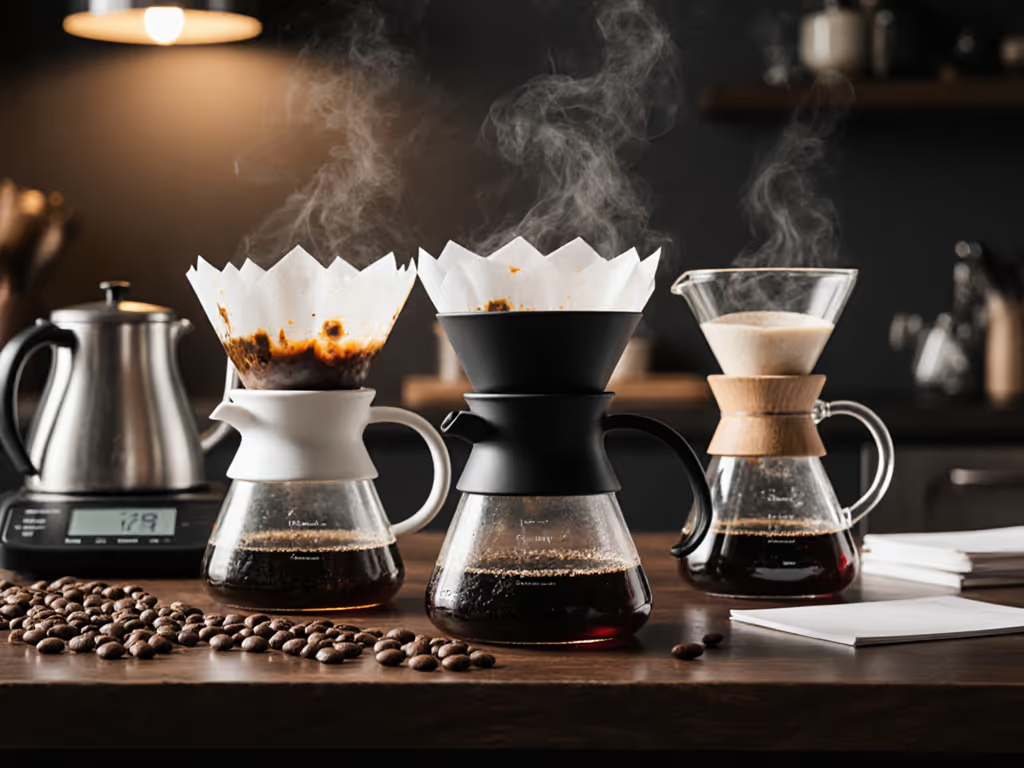
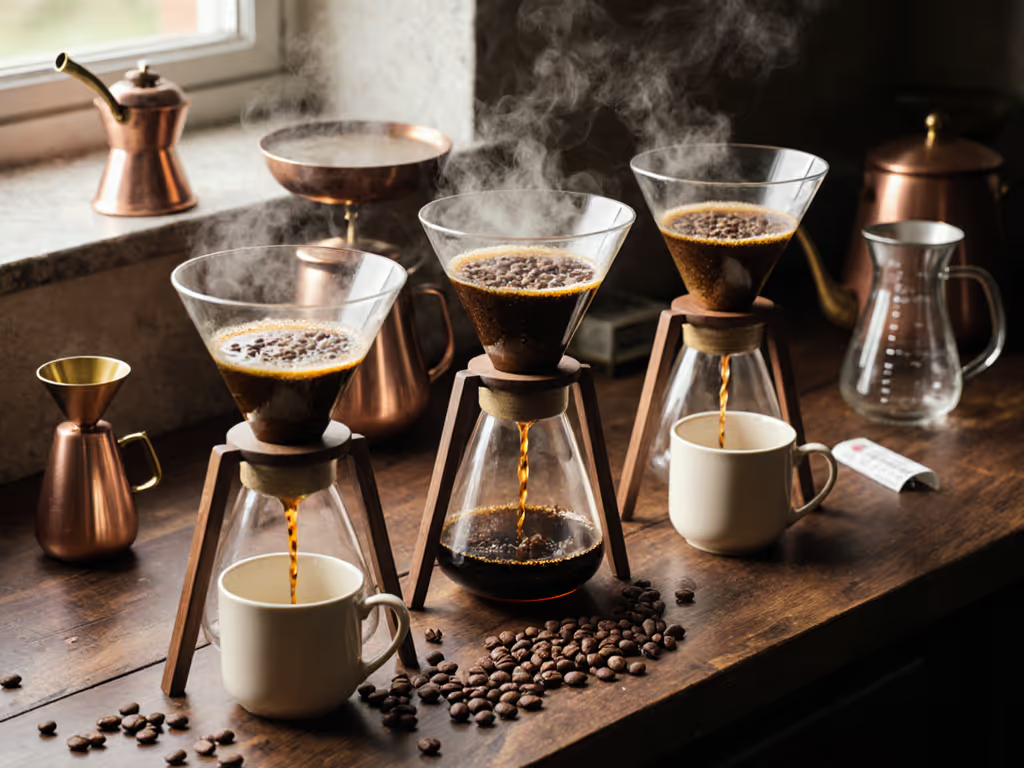
Balanced Pour Over Methods: Best Medium Roast Brewers Tested
